Multiplying scale: how Zone Startups India has refined the model of ‘meta accelerator’ for innovation
This innovative model for accelerators already has 160 startups in its portfolio. Here is how more corporates and startups can team up to promote innovation at scale.
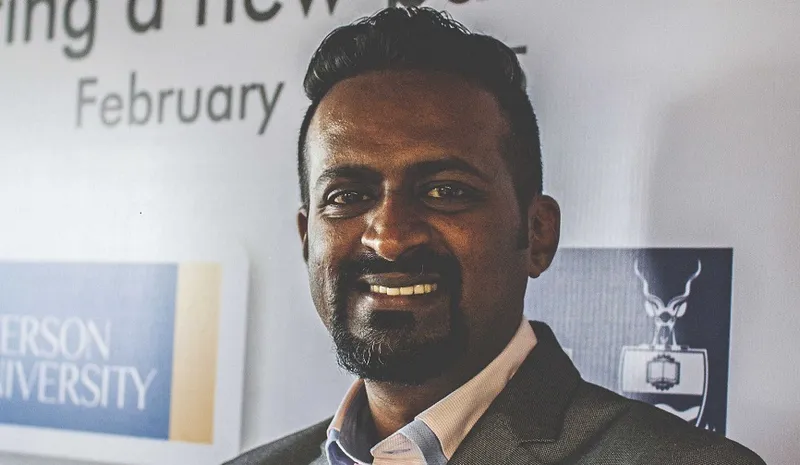
[This article is part of the YourStory series Startup Hatch, about incubators, accelerators, makerspaces and co-working spaces in the startup ecosystem. See earlier profiles of initiatives at IIT Bombay, IIM Bangalore, BITS Pilani, NCL, Tata Elxsi,Axilor, NID, IIIT-Bangalore, IIIT-Hyderabad, Vellore Institute of Technology, PSG Coimbatore, Workbench Projects, Makers Asylum, Appy Hours, Turning Ideas, NetApp Excellerator, Pitney Bowes Accelerator, TechStars, Indigram Labs, WeWork, Z Nation Lab, Sandbox Startups, Brigade REAP, Target India Accelerator, Ashoka Innovators, and Startup Leadership Programme.]
Ajay Ramasubramaniam is Director (India) for accelerator Zone Startups. He earlier led the India operations of a Canadian edtech startup, and worked for the government of Ontario, Canada for five years, promoting bilateral trade and investment relations between Ontario and India.
Ajay was previously with the World Bank and African Development Bank in Tanzania, in the agri sector. He has an MBA in Marketing and Finance and a BCom in Financial Management from Mumbai University.
Zone Startups has a broad portfolio, including FlexiLoans, BabyChakra, VanityCube and Citrus Pay; the accelerator has also run programmes for the Lodha Group, Viacom18, Axis Bank, Barclays and Shell.
Ajay joins us in this interview on opportunities for entrepreneurs in India, the role of accelerators, and the growing ecosystem of partnerships for success.
YourStory: What was the founding vision of Zone Startups, and how is it supported?
Ajay Ramasubramaniam: Zone Startups is a global brand of tech accelerators and early-stage venture funds operated by Toronto-based Ryerson Futures Inc., which was spun out of Ryerson University in 2012. Ryerson Futures Inc. operates its own brand of accelerators, operates corporate accelerators, invests through its early stage venture fund, and extends accelerator support to startups incubated at the multiple incubators at Ryerson University.
The biggest challenge faced by startups at an early stage is validation, mentorship, industry connects and investor access. While many startups may choose to operate from their homes or coffee shops, an accelerator lends credibility and legitimacy to several early-stage ventures and, more importantly, is able to forge relationships and connections that help the startup surge forward. Zone Startups’ accelerators programmes are based on the foundation of #FoundersFirst, and we operate non-cohort based programmes that are able to iterate and support startup teams based on their need of the hour, rather than operating cohorts with a one-size-fits-all approach.
Startups on-boarded to our programmes stay with us anywhere from two months to 12. We adopt a fail-fast approach, and if a startup doesn’t make progress in two months, we help revisit the problem that they are trying to solve and whether it makes senses to pursue it.
But, at the same time, we firmly believe that for many cases, they may need up to a year to prove out the model. Our accelerator programmes are built to work in a fashion that is flexible and works with these companies over a longer course.
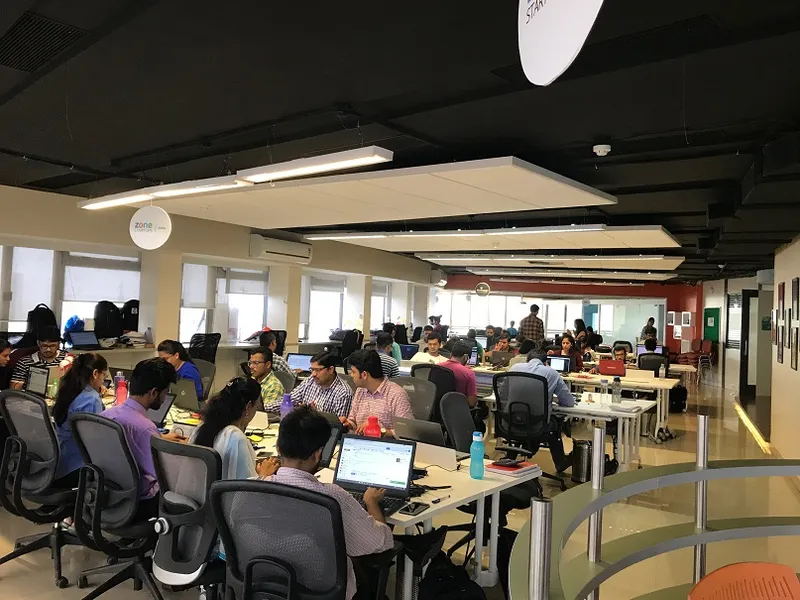
YS: How many corporate partners and startups have you worked with?
AR: Our cumulative portfolio of startups in India is in excess of 160 – largely due to the number of programmes that we operate. We launched our first corporate accelerator in partnership with Barclays in May 2016, and since then there has been no looking back. We have been fortunate to set up accelerators in partnership with Axis Bank, Lodha Group, Shell Foundation and Kerala Startup Mission.
In addition to corporate accelerators, we also operate other formats of corporate innovation programmes, and our list of partners in India includes the likes of Thomson Reuters, Viacom18, Citi, Visa, Capital First, ICICI Lombard, EY India, Australia Institute of Sports and others.
Some of our portfolio startups include FlexiLoans, vPhrase, BabyChakra, Dimension NXG, Focus Analytics and BleeTech. The current batch includes Rockmetric (founded by Nimesh Mehta), GeneCorp (founded by Anand Prasad and Sandeep Agarwal), Morph.ai, Bitgram, Bizlem and Firmway.
YS: What is the profile of the managers at Zone?
AR: What started as a team of just over two employees back in 2014 has now grown to a team of 20. We have been very selective in building the team. Just the way we teach our startups, a team is at the core of what we build and scale; we have stayed glued to that for ourselves as well.
Our team comprises people who have been entrepreneurs, incubation managers, management consultants or venture investors. Between the 20 team members, the core team of six leaders brings a cumulative experience of over 50 years in the startup ecosystem.
Sweta Tiwari, Associate Director, was an investment professional at Mayfield India and was responsible for generating early stage and angel stage leads. She also ran the TiE-IQ Bootcamp, and was an entrepreneur in the chocolate industry where she nurtured a brand called Chocodesire.
Niranjan Demanna, Head Accelerator Program and CSR Program Operations, was earlier heading the Sandbox Startups initiative at Deshpande Foundation Hubballi, and contributed to launch Sardar Patel Technology Business Incubator, Andheri West. He has trained over 300 students in design thinking and business modelling workshops. He is a graduate from University of Nottingham and an electrical engineer by training.
Gokul KS, Director of Special Projects, oversees the Axis Bank Accelerator Program at Thought Factory in Bengaluru. He is also an active volunteer at the iSPIRT think tank, and was earlier at Jaaga and Startup Village. He majored in small business and entrepreneurship from the University of Northampton.
Puneet Sharma, Director, Corporate Innovation Programs, heads the Palava Accelerator in partnership with Lodha Group. He earlier founded two startups, and is a computer science graduate.
Prachi Singhal, Program Director (Gender Inclusion Programs - India), managed the startup community at Zone Startups India, Mumbai as well as the Axis Bank Accelerator Program at Thought Factory in Bangalore. She runs the empoWer initiative, India’s first accelerator program for female tech entrepreneurs.
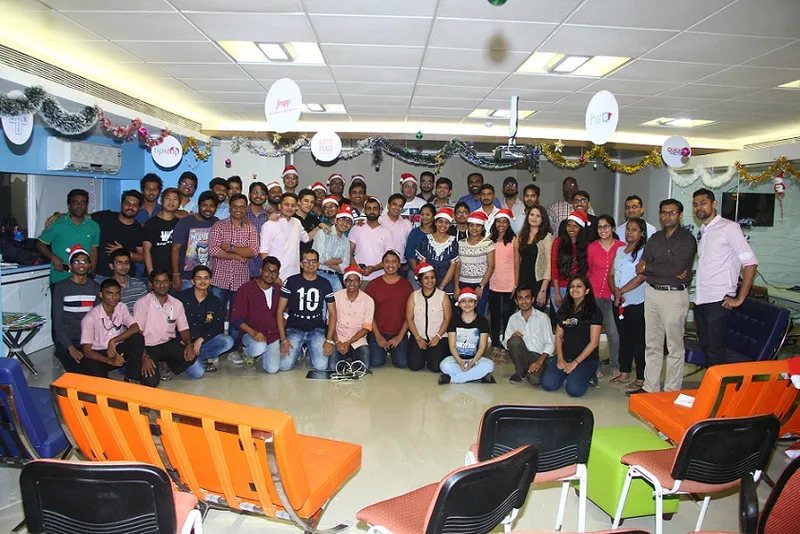
YS: What would you say are the top three opportunities for Indian entrepreneurs?
AR: Fintech continues to be a top opportunity. Other than this, edtech and healthtech seem to be a growing opportunity as well. Working on regional languages is an untapped opportunity for too long now, and the services that can be built over regional languages will open up a very new and large market in itself.
YS: What are the key challenges faced by startups in India, and how can you help bridge the gap?
AR: The fast-growing startup ecosystem in India is still pretty much nascent in several ways. One of the bigger challenges for startups is getting the right kind of mentorship and ongoing support to help them build their networks.
As an accelerator, it is our ongoing endeavour to meet the requirements of startups, based on their needs. Since we do not operate cohort-based models, our interventions are pretty much tailored to the need of the hour. It is the same with getting mentors and advisors as well. We try and get mentors on-boarded on the basis of startups that we are working with at that moment.
Thus, there is a regular churn. More so, since startups lack the kind of industry connections required to help them grow, our biggest push is to help them get these early enterprise customers through our ongoing corporate development initiatives.
YS: What are the unique challenges for social entrepreneurs as compared to tech or business enterprises?
AR: We do not differentiate that way. Entrepreneurs, in general, face similar sorts of challenges that involve identifying the right kind of mentors, building the right team, getting that first customer, identifying the right kind of investor, and so on.
Our accelerator portfolio has over 15 impact startups, using tech to address the problem that they are solving. They all pretty much face very similar challenges. Yes, the context might be a tad different and the type of mentors, customers and investors may be different, but the premise remains the same.
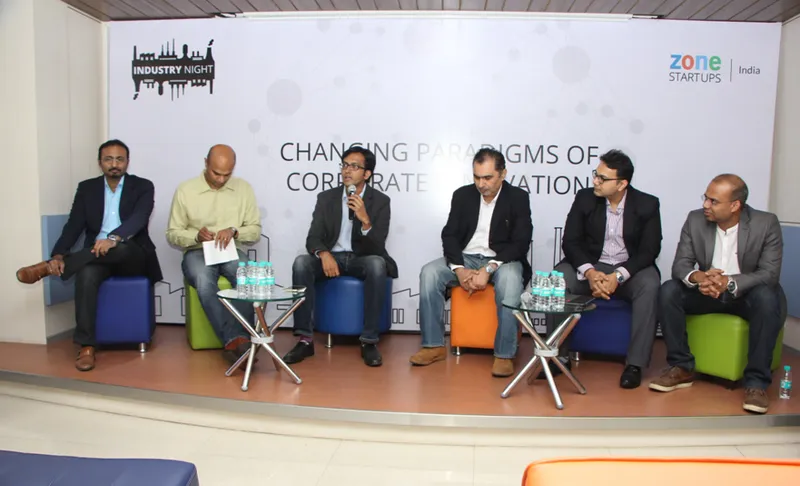
YS: What are the selection criteria for startups in your programmes?
AR: We have a high rejection rate, which is directly proportional to our high success rate of 85 percent startups surviving and growing over the four years of our operations. We largely look for teams that come with a strong industry background or domain expertise. Our focus is on teams that solve scalable problems – geographically and industry-wise, using software and internet.
YS: Who are some of your institutional partners, and what kinds of agreements are in place?
AR: Our flagship programme in India is Zone Startups India, set up as a joint venture of Ryerson Futures Inc., BSE Institute and Simon Fraser University. Zone Startups India is partly funded by the Department of Science and Technology, Government of India.
Apart from this, we also operate corporate accelerators, and currently have programmes with Lodha Group and Shell Foundation. Additionally, over the past four years, we have set up accelerators and innovation programmes with the likes of Barclays, Axis Bank, Viacom18, Thomson Reuters, ICICI Lombard, HDFC Bank, TVS Credit, BNP Paribas, Citi, HDFC Bank and EY India.
YS: What support and services do startups receive from your programme?
AR: Our programmes are built on the pillars of validation, mentorship, industry connect and investor access. Startups that get selected for our programmes get access to a world-class working infrastructure, quality mentors, corporate connects, networking opportunities, access to Zone Startups’ international network, investor connects, technology support, and a high quality peer network.
YS: What percentage of equity do you charge your startups?
AR: When we began operations in 2014, there was a mad rush of folks setting up accelerators (or co-working spaces moonlighting as accelerators), and it was getting difficult to attract quality applications, as startups were very unclear of the entire “accelerator” model.
So we spent the first 18 months operating on a pro bono basis, and “validating” our model through startups. Since then, we have come a long way, and we take anywhere from 0.5 percent to three percent, depending on the stage of the startup.
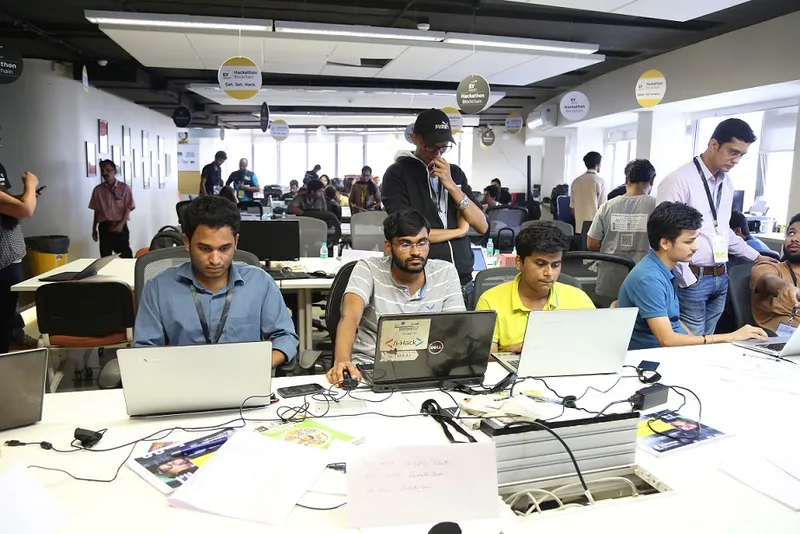
YS: What kinds of IP are being created by your startups?
AR: Our portfolio is extremely diverse. We have startups with IPR ranging across mixed reality, computer vision, wearables for accessibility, machine learning / artificial intelligence and industrial IOT. Our bigger focus in enterprise tech, as we find that to be scalable across geography and industries.
YS: How would you differentiate your accelerator model from the other accelerators in the field?
AR: We believe that the biggest bottleneck to scaling up of accelerators, globally, is the inability to have a business model other than basing it on equity for services or fees for infrastructure and the like. We have scaled significantly by bringing in corporate innovation in the mix as a specialisation or domain expertise. Our biggest differentiators are operating a non-cohort-based model, and being a meta-accelerator operating different models of corporate innovation.
YS: What would you define as success for your accelerator model?
AR: We see success through a large portfolio of successful startups that have raised funding and built strong revenue streams with an impressive list of clientele, as well as scaling up our operations with a diverse portfolio of programmes. The success of portfolio startups is measured with scale in number of employees, customers, effective pivots, and so on.
YS: How do you compare and contrast India’s accelerators with those of other countries like the US and China?
AR: This is like comparing apples and oranges. No two accelerators can or should be compared, whether in the same market or otherwise. Accelerator programmes vary by the team that is leading it. Accelerators are very operations-heavy, and the reason startups get into an accelerator is largely to get what they don’t possess, or don’t have access to.
This can vary from access to mentors, access to customers, access to peer group, access to investors, legitimacy through validation and so on. These takeaways will always vary from accelerator to accelerator. Likewise, the ecosystem makes a huge difference. So, it does not makes sense comparing accelerators in the US and China with those in India.
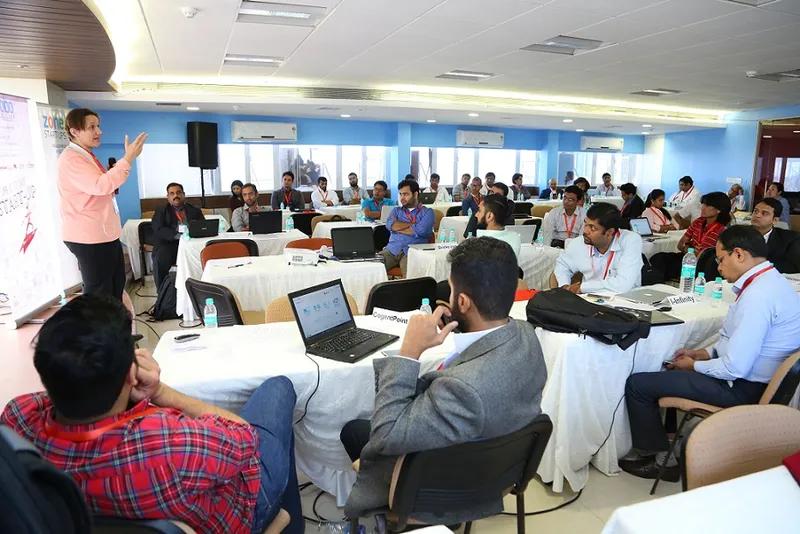
YS: What are your plans for the coming three to five years with respect to new startups and accelerators?
AR: We see ourselves setting up more programmes, iterating with the need of the industry and the ecosystem. Three to five years is a fairly long duration to be able to predict, but we are here for the long haul. Of course, the big plan is to have a larger portfolio of startups that have gone on to become successful.
YS: What are the challenges you face, and how can they be overcome?
AR: Accelerators should not and cannot be operating a fixed model. There is no secret sauce as such either. Being iterative is very important for the success of accelerators; likewise ensuring financial sustainability is also key to success and growth. We have managed to tackle both these hurdles and now look at them more as an opportunity than a challenge.
YS: How can better partnerships be forged between accelerators, industry and universities in India?
AR: Accelerators cannot operate in isolation. In fact, the way we see it, there are very specific markets for the existence of co-working spaces, bootcamps, incubators and accelerators. Accelerators can unconditionally be successful only when the ecosystem comprises of startups, successful ecosystem of entrepreneurs, academic institutions, industry, investors, enablers and an overarching government engagement.
YS: What are your recommendations for Indian policymakers to make business easier for accelerators, investors, researchers and startups in India?
AR: We feel that the Indian government (Central and State) is doing a fabulous job for the startup ecosystem. There hasn’t been a better time to start up, if you are planning to. Department of Science of Technology, Niti Aayog, and BIRAC at the Central government level are a huge support for setting up and operating research parks, incubators and accelerators.
Governments can, at best, be facilitators and create corpuses to disburse, but the real action is in the hands of the executor, i.e, agency or organisation that sets up these programmes and operates them.
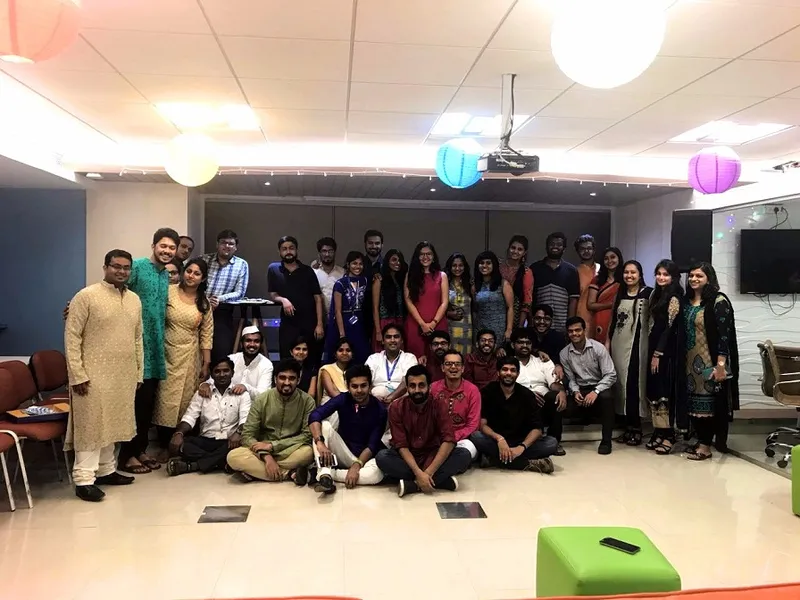
YS: What are your recommendations or words of inspiration to the startups and entrepreneurs in our audience?
AR: Starting up isn’t easy. It requires courage, conviction and perseverance. Once you choose the path of entrepreneurship, give it your best, and the aspiration should always be to go big.
There are no shortcuts or half-measures to success, and one must be mindful of that. Human capital is the most precious of all forms of capital available. Think, and put “yourself” to the best application possible.







